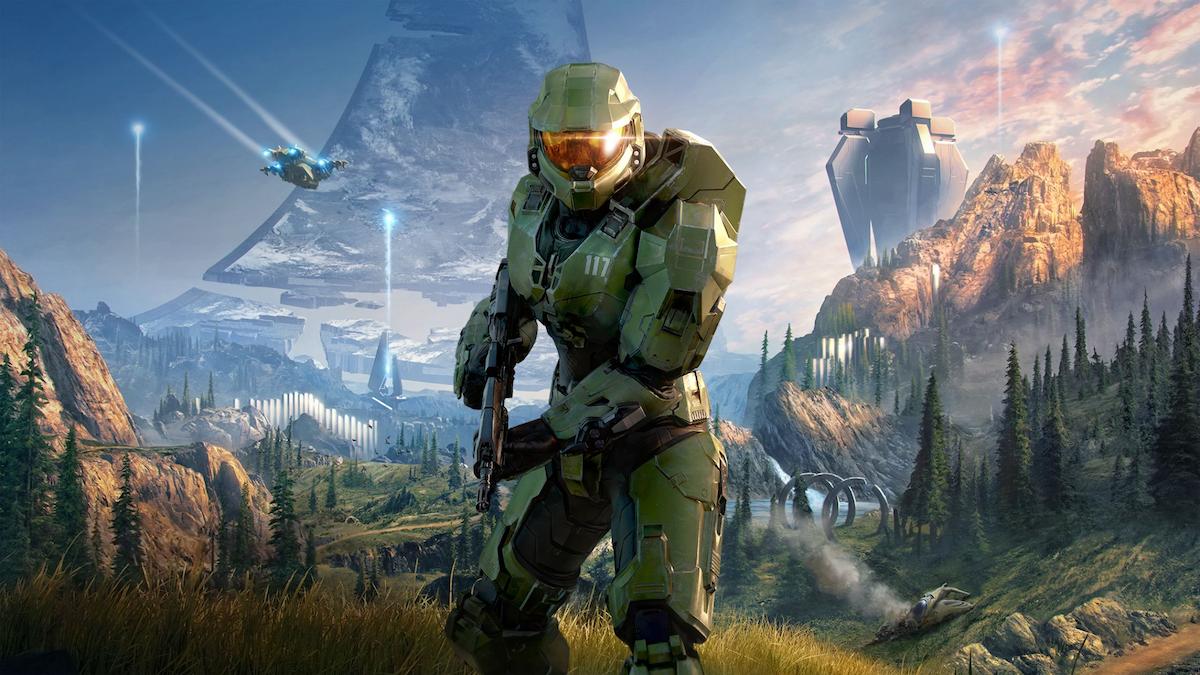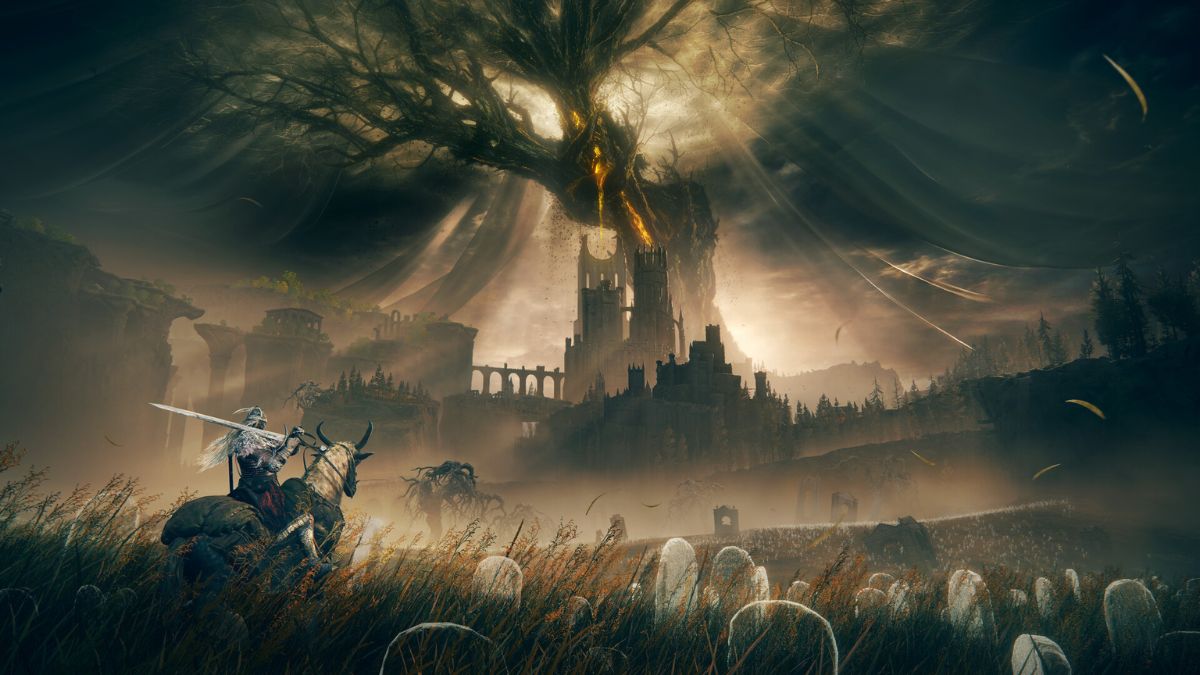The Halo franchise is the Xbox’s flagship series and is one of the most popular first-person shooters in the market. The series introduces the world to Master Chief and has some of pop culture media’s most iconic futuristic weapons. Everyone knows what the energy sword looks like and what sticky bombs are.
If you’re new to the Halo franchise and are curious about where to start, there are multiple ways to go through the series. If you want to go through the franchise numerical, beginning with Halo 1 and working your way to Halo 5, that is a viable option. You can also play the games in release order, which will provide a smooth transition from the earlier games to the more modern ones. However, the games were not released in chronological order.
Related: Does Halo Infinite co-op have crossplay? Answered
In which order should you play the Halo games?
This article goes over what order of the Halo games you should play if you want to experience them chronologically.
1) Halo Wars

Halo Wars is a spin-off of the main Halo series and takes place roughly 20 years before the events of Halo: Combat Evolved. Halo Wars is a real-time strategy game where you can construct your own army. The game takes place during Earth’s war with the alien Covenant when the UNSC had several squads of Spartan Super Soldiers at their disposal. Certain aspects of Halo Wars can be confusing since it brings up a lot of lore that is further expanded in other titles, but it is the game that takes place the earliest within the Halo timeline.
2) Halo Reach

Original Halo studio Bungie created Halo Reach as the company’s swan song for the Halo franchise. Like Halo Wars, Reach is a prequel to the main Halo series, but the events of Reach take place directly before the events of Halo: Combat Evolved. Reach follows the exploits of the doomed Noble Team of the planet Reach. The team consists of Spartans, super-soldiers created by the UNSC to fight against the aliens of the Covenant.
Halo: Combat Evolved

It’s through Halo: Combat Evolved that all the important terminology and lore are revealed to the player. The game introduces gamers to concepts like Halos, the UNSC, Spartans, the Covenant, the Flood, and important characters like Master Chief and Cortana. It throws a lot at you, but the game successfully tells its story simply enough that you will never feel overwhelmed by it all. In Combat Evolved, Master Chief awakens from a long slumber and finds himself having to fight a war with a group of aliens who are part of the Covenant. The game takes place entirely on a giant ring structure known as a Halo.
Halo 2

Halo 2 continues Master Chief’s journey, except now the fight has reached its way onto Earth. Halo 2 improves everything that was established in the first Halo game while further exploring the lore of the universe. The game splits the story perspective between the Chief and a new character known as the Arbiter — an alien known as an Elite who initially worked for the side of the Covenant only to then discover a conspiracy that threatens all life in the universe.
Halo 3: ODST

ODST takes place between Halo 2 and 3, and follows a small squadron of human soldiers on Earth. The lead protagonists in ODST are normal humans instead of an overpowering super-soldier. They are more vulnerable than the Chief and deal less damage. ODST has a more somber tone than the traditional Halo games, as the main characters’ situations are more desperate and grounded than the grandiose adventures of Master Chief and the Arbiter. The somber tone is further elaborated with “Sadie’s Story,” which are optional audio files that players can find throughout the game that tells the story of a civilian girl.
Halo 3

“Finish the fight”
The advertising for Halo 3 was one of the most hype for a video game ever, with early teasers and promotional images promising Halo 3 will be the biggest game of the decade. As the tagline promised, Halo 3 focuses on Master Chief and the Arbiter teaming up to end Earth’s war with the Covenant and prevent the activation of the Halo rings.
Halo 3 lacks the emotional depth that was featured in ODST and Reach, but makes it up with its strong gameplay mechanics and has a satisfying ending to the original Halo trilogy.
Halo 4

Before Halo 4, all Halo games were either developed or produced by Bungie. Bungie decided to leave the Halo franchise after Reach, with Halo 4 being the first game fully developed by 343 Industries.
343i was created, with former Bungie veterans, specifically to make more Halo games following Bungie’s departure. Halo 4 serves as a test drive for the company, offering Halo fans a competent yet unremarkable entry in the series. Halo 4 follows up on Master Chief’s story after the events of 3, and he finds himself on a new mysterious planet that has ties to an ancient species known as Forerunners — the creators of the Halo rings, which were created to stop a parasitic lifeform known as the Flood.
Halo 5

Halo 4 was a safe entry in the series, but Halo 5 was far more ambitious. Halo 5 story centered around two teams of Spartan soldiers, one of which is led by Master Chief, and the other squadron is led by newcomer Locke, who is chasing after Chief when the latter went AWOL. Halo 5 was ridiculed for its lack of innovation in terms of gameplay, lackluster story, and not offering split-screen co-op.
Halo Wars 2

Halo Wars 2 is another Real-Time Strategy game. It takes place after Halo 5, centering around a conflict between the crew of the Spirit of Fire and a rogue alien faction — both sides are fighting over a new Forerunner Halo installation known as an Ark.
Halo Infinite

After Halo 5’s lukewarm response, Halo Infinite promised to be a course correction for the franchise. The extra Spartan characters were gone, and the story focused primarily on Master Chief’s quest to find his AI companion Cortana. Infinite’s big focus is its expansive online multiplayer and bringing Halo back to its roots. The game is praised for being a welcome return to classic Halo and continues to be updated with new content.







Published: Jun 30, 2022 11:59 pm